As someone who has been navigating the complex world of cryptocurrencies for years now, I must say that the landscape has truly evolved since I first dipped my toes into this digital sea. Back then, it was a wild frontier with few reliable options for securely storing and managing my crypto assets. But today, we have a plethora of top-notch cryptocurrency wallets at our disposal, each offering unique features that cater to different needs.
Among the software wallets, Coinbase Wallet stands out as an extension of the leading U.S. exchange, providing users with the peace of mind that comes from partnering with a trusted name in the industry. On the other hand, Binance Wallet offers a hybrid solution for those who prefer the convenience of a seedless wallet backed by one of the most influential players in the crypto space.
For those who are deeply entrenched in the Ethereum ecosystem, MyEtherWallet is an open-source option that allows users to interact seamlessly with the blockchain and its thriving ecosystem. TronLink, too, caters specifically to the TRON and BitTorrent communities, offering a core wallet experience for these popular platforms.
Bitget Wallet, previously known as BitKeep, is another powerful player in the self-custody wallet arena, boasting an impressive insurance fund, cross-chain swap module, and NFT marketplace. It’s like having a one-stop shop for all your crypto needs!
Hardware wallets are also essential tools in any cryptocurrency enthusiast’s arsenal, and Trezor and Ledger have been longstanding favorites due to their reliability, encryption, and user-friendly interfaces. The new generation of Ledger backup technology is particularly noteworthy, as it offers an added layer of security for those who value peace of mind above all else.
Lastly, we have the pioneering NFID Wallet, the only wallet governed by a DAO rather than a centralized organization. Its advanced Passkey and Chainkey technologies deliver unparalleled security while offering a seamless user experience that requires no installations or downloads—just an email to get started!
In closing, I must say that as someone who has lost more than a few coins to the perils of digital wallets past, I can confidently say that today’s crop of top cryptocurrency wallets has truly raised the bar for secure storage and management of our precious crypto assets. But remember, even with the best wallet in the world, always keep your private keys safe and never share them with anyone—not even your mom (unless she’s a blockchain expert, of course!).
With Bitcoin (BTC) reaching the $100,000 milestone, the necessity of selecting a reliable cryptocurrency wallet for your holdings becomes increasingly important. As prices for Bitcoin, Ethereum, and other altcoins surge, so does the level of activity among cybercriminals such as attackers, scammers, hackers, and manipulators.
Now is the perfect time to explore the top wallets for cryptocurrency in 2025. Here, you’ll find a comprehensive guide to embark on a convenient, secure, and profitable experience in the Web3 world.
Top cryptocurrency wallets: Highlights
A crypto wallet, also known as a blockchain wallet, serves as a platform where you can receive, save, swap, and transfer digital coins that operate using blockchain technology.
- Cryptocurrency wallets, or crypto wallets, are services designed to facilitate storage and transfers of cryptocurrency.
- The best cryptocurrency wallets allow storing and sending crypto in a cost-efficient, fast, secure and confidential manner.
- There are centralized and decentralized wallets, single-chain and multi-chain wallets, while some cryptocurrency wallet services also support operations with major fiat currencies.
- Coinbase Wallet, Binance Web3 Wallet, MyEtherWallet, TronLink and Bitget Wallet are usually listed among the best software crypto wallets.
- Trezor and Ledger are the most popular hardware wallets for crypto.
Regarding technology, crypto wallets function as identifiable locations within a blockchain system. These locations can be found using public keys, which are similar to addresses, and controlled using private keys, akin to a personal password.
Top crypto wallets: List
Among the leading crypto wallets, you’ll find options that are both secure and versatile across multiple blockchains. These can be either centralized or decentralized, catering to swift and secure transactions of your digital assets.
- Coinbase Wallet.
- Binance Wallet.
- MyEtherWallet.
- TronLink.
- Bitget Wallet.
- Trezor.
- Ledger.
- NFID.
Instead of Trezor and Ledger, these are hardwear-based, secure devices with cryptographic protection, whereas other choices consist of software solutions that can be accessed through web interfaces, desktop apps, or mobile apps.
What is crypto wallet?
As a crypto enthusiast, I’d say my digital crypto wallet is tailored just for me, safeguarding my valuable crypto assets and enabling smooth transactions within the world of virtual currencies.
Fundamentally, it consists of a set of cryptographic pairs: A confidential key, hidden and essential for managing crypto assets, and a public key, openly used for wallet recognition. The interplay of these keys ensures secure transactions within a blockchain system. It’s crucial for users to protect their private keys, as misplacing them results in losing control over their assets.
A basic categorization of cryptocurrency wallets consists of software wallets, which are apps or websites, and hardware wallets, advanced encrypted devices.
A crypto wallet, similar to digital payment systems in the traditional Web2 world (using fiat currencies), doesn’t actually hold your cryptocurrencies physically. Instead, it serves as a platform for interfacing with the blockchain, keeping track of ownership and transaction details.
Cryptocurrency wallets serve as a vital category of cryptocurrency-related services. They play a crucial role in all sorts of activities involving crypto, such as buying/selling, investment, managing liquidity, creating new assets and more.
In simpler terms, if you want to engage with cryptocurrencies in any way, having a cryptocurrency wallet is essential.
How to choose best crypto wallet?
For both beginners and experienced users, it’s crucial to scrutinize a cryptocurrency wallet’s security aspects, capabilities, and overall user-friendliness when making a selection.
- Security first: The best wallets feature robust security measures, such as multi-factor authentication (MFA), strong encryption and backup options. For extra security, users should experiment with wallets that are protected by hardware or multi-signature setups. Also, potential users should research the wallet’s reputation for protecting clients against attacks.
- Various use cases, various services: It is essential to choose a wallet suitable for one’s cryptocurrency strategy. Software wallets are better for frequent transactions, trading, liquidity management in DeFi and accessibility, while hardware wallets offer enhanced security for long-term storage.
- Single interface, many currencies: Users should always be sure that a wallet supports all the cryptocurrencies they plan to use. Some wallets only work with one blockchain (e.g., Bitcoin-only), while others connect customers to a variety of blockchains (Ethereum, Tron, BSC and so on).
- Streamlined UX and clear UI: Traders with only basic expertise in the cryptocurrency segment should pick a wallet with an intuitive interface and clear instructions. Additionally, they should research the recovery process, like a seed phrase or backup key, in case of device loss or failure.
In simpler terms, an excellent cryptocurrency wallet offers a user-friendly interface, is easily accessible, comes with powerful features, and boasts robust, proven security measures.
Crypto wallets: Types
Due to a multitude of cryptocurrency wallet options in the market, various methods exist for categorizing them. Common classification systems often revolve around key management strategies, the breadth of compatible networks, and the nature of their integration with traditional (fiat) currencies.
Centralized crypto wallets versus decentralized crypto wallets
In simple terms, centralized crypto wallets hold and control your private keys for you, so if you ever lose access (like forgetting a password), the wallet service can help recover it. On the other hand, decentralized wallets require users to save and manage their own private keys, making setup less user-friendly but offering enhanced privacy benefits.
Single-blockchain crypto wallets versus multi-blockchain crypto wallets
Certain cryptocurrency wallets function solely with one type of blockchain. For example, Electrum is a Bitcoin-specific wallet that’s designed exclusively for storing and transferring Bitcoin (BTC). On the other hand, there are wallets that allow transactions across multiple blockchains within a unified platform and even facilitate cross-blockchain currency conversions.
Crypto wallets with fiat support versus crypto wallets with no fiat support
To ensure optimal use of financial resources, certain digital wallets provide direct connections to traditional payment systems. This feature enables users to purchase cryptocurrencies like Bitcoin using credit cards, Google Pay, Apple Pay, PayPal, Venmo, and even wire transfers. However, integrating with fiat currencies demands considerable investment in infrastructure, fees, and compliance with regulatory standards. Moreover, wallets that offer crypto-to-fiat exchange services typically require their users to undergo mandatory identity verification procedures (KYC).
Alternative categorizations can be made according to the integration of mixers, the provision of off-chain signatures, connections to cryptocurrency exchanges, among other factors.
Top cryptocurrency wallets in 2025: Brief review
In this discussion, we’ll take a look at top-tier cryptocurrency wallet options tailored for beginners in the year 2025. Our focus will be on essential features, usability, and security aspects of various digital wallets, to ensure seamless navigation during the upcoming bull market surge.
Top crypto wallets: Coinbase Wallet
Website: https://www.coinbase.com/wallet

https://www.coinbase.com/wallet
-
LaunchedSeptember 2023
-
TypeSoftware crypto wallet
-
CustodySelf-custody
-
HeadquartersUSA
As an analyst, I’d rephrase it as: “I’m referring to the self-managed cryptocurrency wallet known as Coinbase Wallet, a product of Coinbase, a well-known digital asset trading platform. This wallet is compatible with major cryptos like Bitcoin (BTC), Ethereum (ETH), Solana (SOL), Dogecoin (DOGE), and all mainstream Ethereum Virtual Machine Layer 2 blockchains.
100,000+
Brian Armstrong, Fred Ehrsam
Coinbase
Crypto-to-fiat gateway, NFT marketplace, dApp integration, cross-chain swap module
No
In September 2023, Coinbase Prime users were introduced to a self-custody wallet solution. A year after that, other Coinbase users received access to Coinbase Wallet.
Coinbase Wallet is a personal crypto wallet provided by Coinbase, a prominent U.S. cryptocurrency trading platform. The wallet service for Coinbase Prime users was presented in September 2023, while the rest of the exchange’s users gained access to Coinbase Wallet a year later.
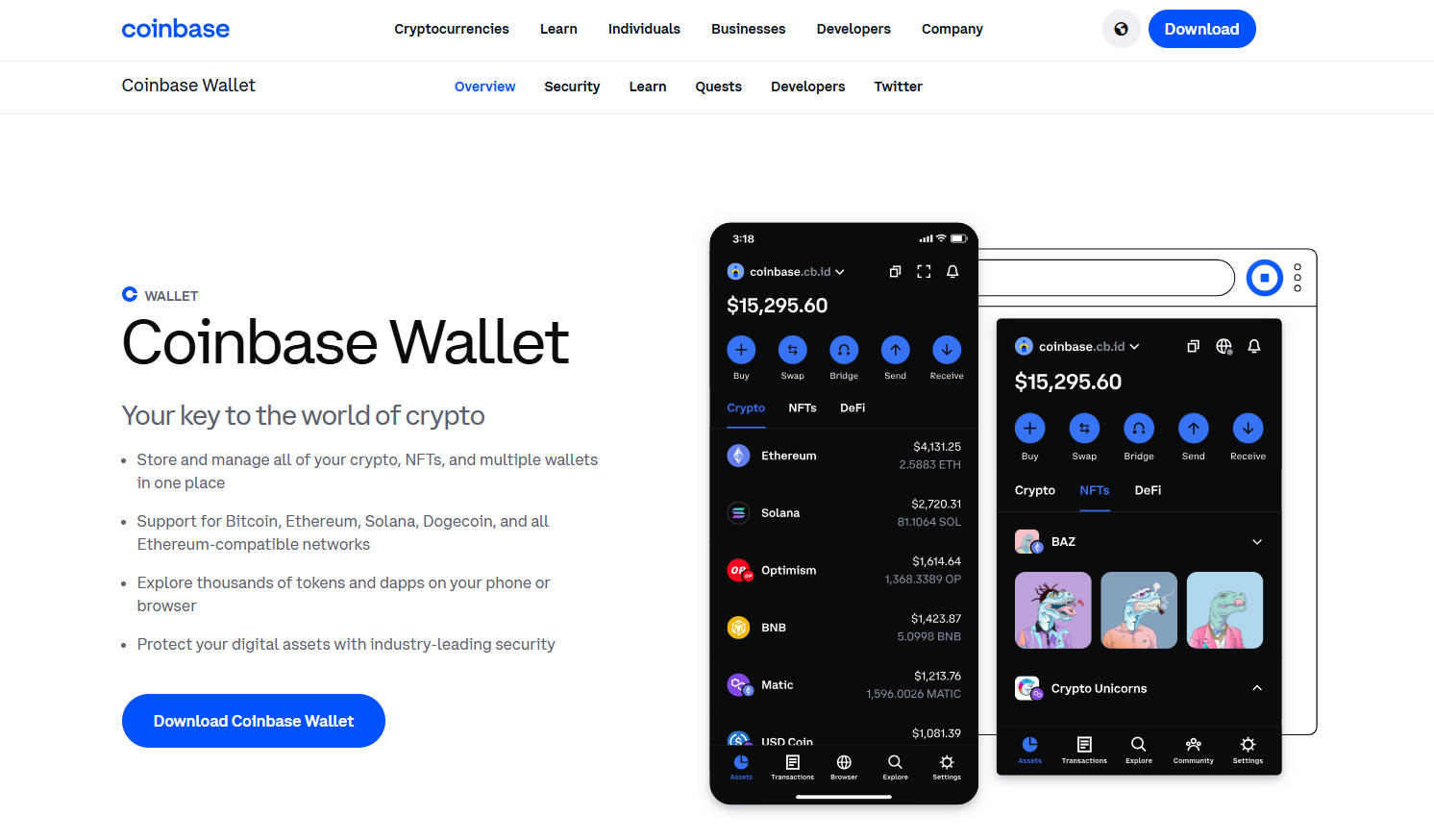
With Coinbase Wallet, users have the autonomy to handle their own keys, ensuring top-notch privacy and security. This versatile tool supports popular cryptocurrencies such as Bitcoin (BTC), Ethereum (ETH), Solana (SOL), Dogecoin (DOGE), and all well-known Ethereum Virtual Machine (EVM) L2 blockchains.
The wallet comes with built-in capabilities for an NFT marketplace and a cryptocurrency exchange system. With robust tools for converting fiat currency into digital assets, the Coinbase Wallet enables users to buy cryptocurrencies using traditional money.
Top crypto wallets: Binance Wallet
Website: https://www.binance.com/en/web3wallet

https://www.binance.com/en/web3wallet
-
LaunchedNovember 2023
-
TypeSoftware crypto wallet
-
CustodyHybrid semi-custody seedless
-
HeadquartersCayman Islands
The Binance Wallet, offered by the prominent cryptocurrency exchange Binance, functions as a non-custodial, decentralized Web3 wallet. It boasts an innovative seedless design for secure key recovery. This wallet serves multiple purposes such as storing and transferring various cryptocurrencies, interfacing with decentralized applications (dApps), participating in staking activities, and handling Non-Fungible Token (NFT) operations.
2,000+
Changpeng Zhao, Yi He
Binance
1. Changing cryptocurrency to regular money (fiat) platform, digital art trading platform (NFT), application integration for decentralized apps (dApp), multi-chain exchange tool, user interface for Decentralized Autonomous Organizations (DAO), Software Development Kit (SDK)
2. Platform for converting cryptocurrencies to real-world money, online marketplace for Non-Fungible Tokens (NFTs), application integration for decentralized apps (dApps), tool for exchanging assets across blockchains, interface for Decentralized Autonomous Organizations (DAOs), software development kit (SDK)
3. Transforming crypto to cash service, digital artwork trading site (NFT marketplace), app integration for decentralized applications (dApps), multi-chain exchange feature, user interface for DAOs, SDK for developers
4. Service for swapping cryptocurrencies with fiat money, platform for buying and selling unique digital items (NFT marketplace), application integration for decentralized apps (dApps), tool for exchanging assets across multiple blockchains, interface for Decentralized Autonomous Organizations (DAOs), developer kit (SDK)
5. Turning cryptocurrency into cash system, online trading platform for digital artworks (NFT marketplace), app integration for decentralized applications (dApps), multi-chain asset exchange module, user interface for Decentralized Autonomous Organizations (DAOs), SDK for developers to utilize
6. Platform for swapping cryptocurrency with fiat money, digital artwork trading site (NFT marketplace), application integration for decentralized apps (dApps), tool for exchanging assets across multiple blockchains, interface for Decentralized Autonomous Organizations (DAOs), development kit (SDK)
BSC
Utilizing advanced Multi-Party Computation (MPC) technology, the Binance Wallet divides a single key into three separate portions that are kept apart. This setup allows crypto traders to enjoy exceptional security without the requirement of generating seed phrases.
As a researcher, I’d describe Binance Wallet (originally known as Binance Web3 Wallet) as a distinctive hybrid wallet that combines the advantages of self-custody and centralized solutions. In this setup, users retain control over their keypair, yet they are spared from downloading the seed phrase – a crucial instrument for recovering blockchain wallets in an emergency.
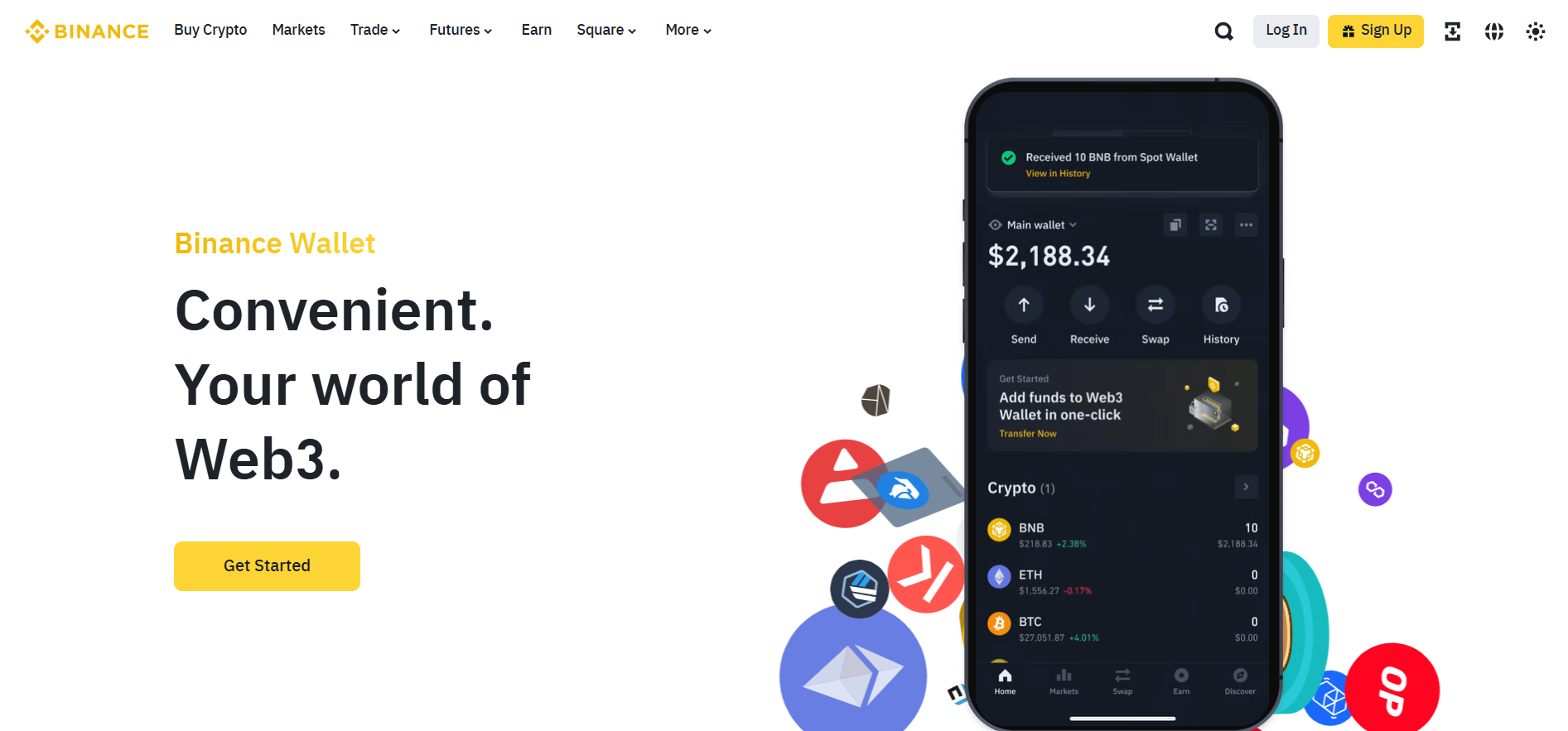
Utilizing cutting-edge Multi-Party Computation (MPC) tech, Binance Wallet splits your keys into three distinct and secure storage locations. This means crypto traders can benefit from exceptional security without requiring a seed phrase for their transactions.
Binance’s digital wallet allows users to work with multiple blockchains, both within and beyond its own ecosystem, thanks to features like Binance Bridge and an internal swap function. This makes it simple for crypto holders to transfer value across diverse blockchain networks. The wallet also offers effortless integration with Binance (BNB), the globally recognized leader in cryptocurrency exchanges.
Top crypto wallets: MyEtherWallet
Website: https://www.myetherwallet.com/

https://www.myetherwallet.com/
-
LaunchedMarch 2015
-
TypeSoftware crypto wallet
-
CustodyNon-custodial
-
HeadquartersUSA
MyEtherWallet, frequently shortened as MEW, serves as a user-friendly platform for engaging with Ethereum and EVM blockchains. This versatile tool is among the oldest and most respected applications within the Ethereum community. It’s useful in managing private keys across various business-to-business (B2B) and business-to-consumer (B2C) scenarios.
All ERC tokens
Kosala Hemachandra, Taylor Monahan
No
Crypto-to-fiat gateway, NFT marketplace, dApp integration, SDK
Ethereum
MyEtherWallet additionally offers functionality for native staking, Ethereum Name Service (ENS) generation, and stablecoin minting facilities.
As a long-time cryptocurrency enthusiast, I can confidently say that MyEtherWallet (MEW) stands out as one of the most reliable Ethereum (ETH) wallets available. With years of personal experience in the crypto world, I’ve encountered numerous wallet options, and MEW consistently ranks high on my list due to its credibility, user-friendly interface, and robust security features.
For those new to the Ethereum ecosystem, generating a secure wallet through MEW is an effortless process that allows for seamless interaction with decentralized applications (dApps) in a cost-efficient manner. The fully open-source nature of the platform adds an extra layer of trust and transparency, as anyone can scrutinize its code for potential vulnerabilities or improvements.
In my opinion, MEW is an essential tool for any Ethereum user, whether you’re a seasoned crypto veteran or just starting your journey in the world of decentralized finance. Its intuitive interface and focus on security make it a top choice for managing your ETH and interacting with the growing ecosystem of dApps built on the Ethereum network.
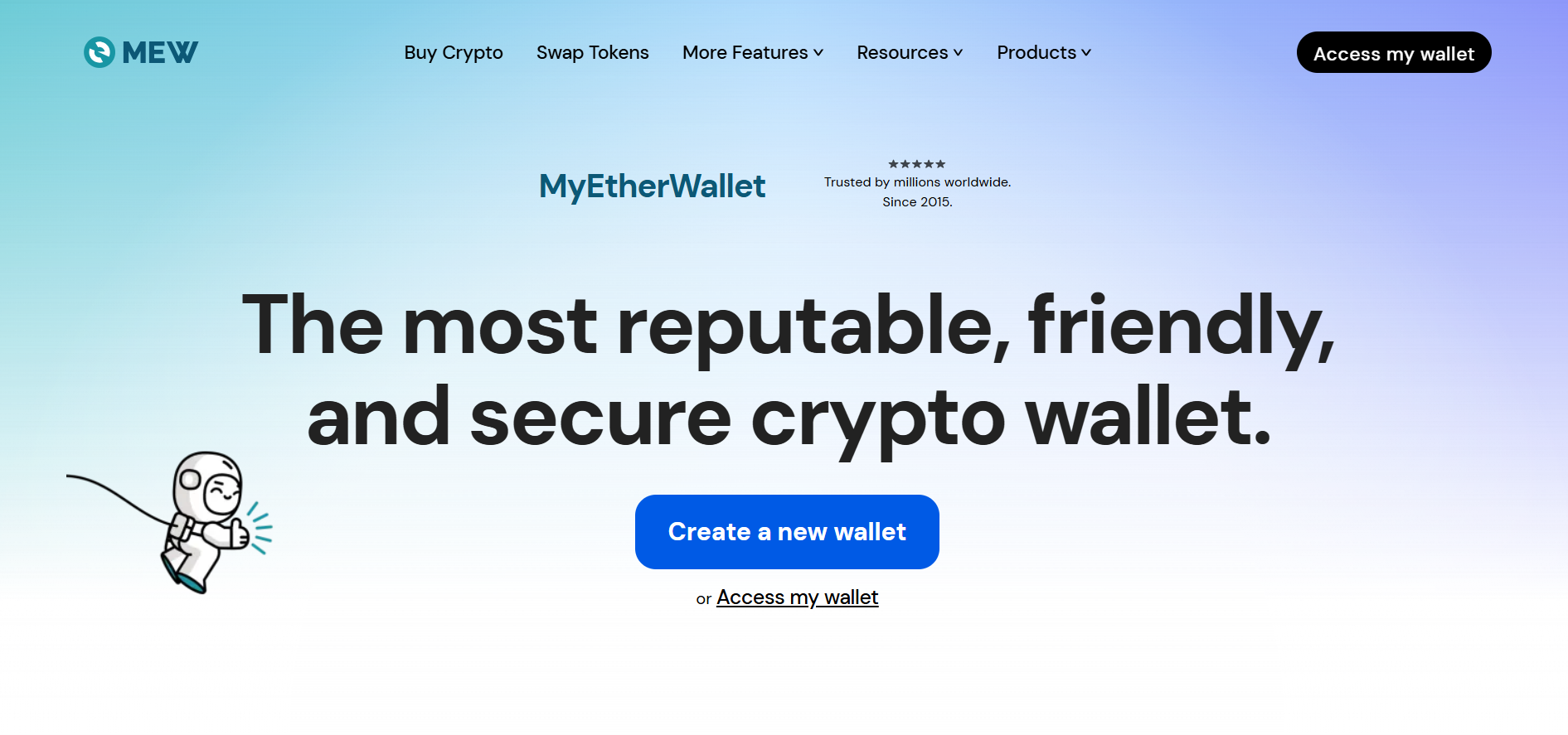
MyEtherWallet offers built-in staking modules, Ethereum Name System name generator, a tool for creating stablecoins, and exchange features facilitated by 1inch, DEX AG, Changelly, Bity, and Simplex. It also includes swap functionality supported by 1inch. The platform is compatible with NFT marketplaces and can be effortlessly integrated with hardware wallets. Apart from the web version, the product is accessible as a mobile application for iOS and Android devices.
Top crypto wallets: TronLink
Website: https://www.TronLink.org/
https://www.tronlink.org/
-
LaunchedJune 2018
-
TypeSoftware crypto wallet
-
CustodyNon-custodial
-
HeadquartersTaiwan
TronLink serves as the leading personal wallet for transactions within the TRON and BitTorrent networks. It’s the preferred choice for using decentralized apps (dApps) based on TRON, as well as for transferring USDT on its associated blockchain.
All TRC tokens
Anonymous
No
NFT marketplace, dApp and DAO integration, TRX staking tools
TRON
Apart from being the widely-used wallet specifically tied to TRON and backed by Justin Sun, the latest upgrades have enabled TronLink’s Chrome extension to function not just on TRON networks but also on other blockchains that use Ethereum Virtual Machine (EVM), such as Ethereum (ETH) and Binance Smart Chain (BSC).
TronLink, commonly referred to as TronLink Global, serves as the main digital wallet for the TRON and BitTorrent (BTT) networks. With recent improvements, its Chrome Extension is now compatible with EVM-based blockchains such as Ethereum (ETH) and BNB Smart Chain (BSC).
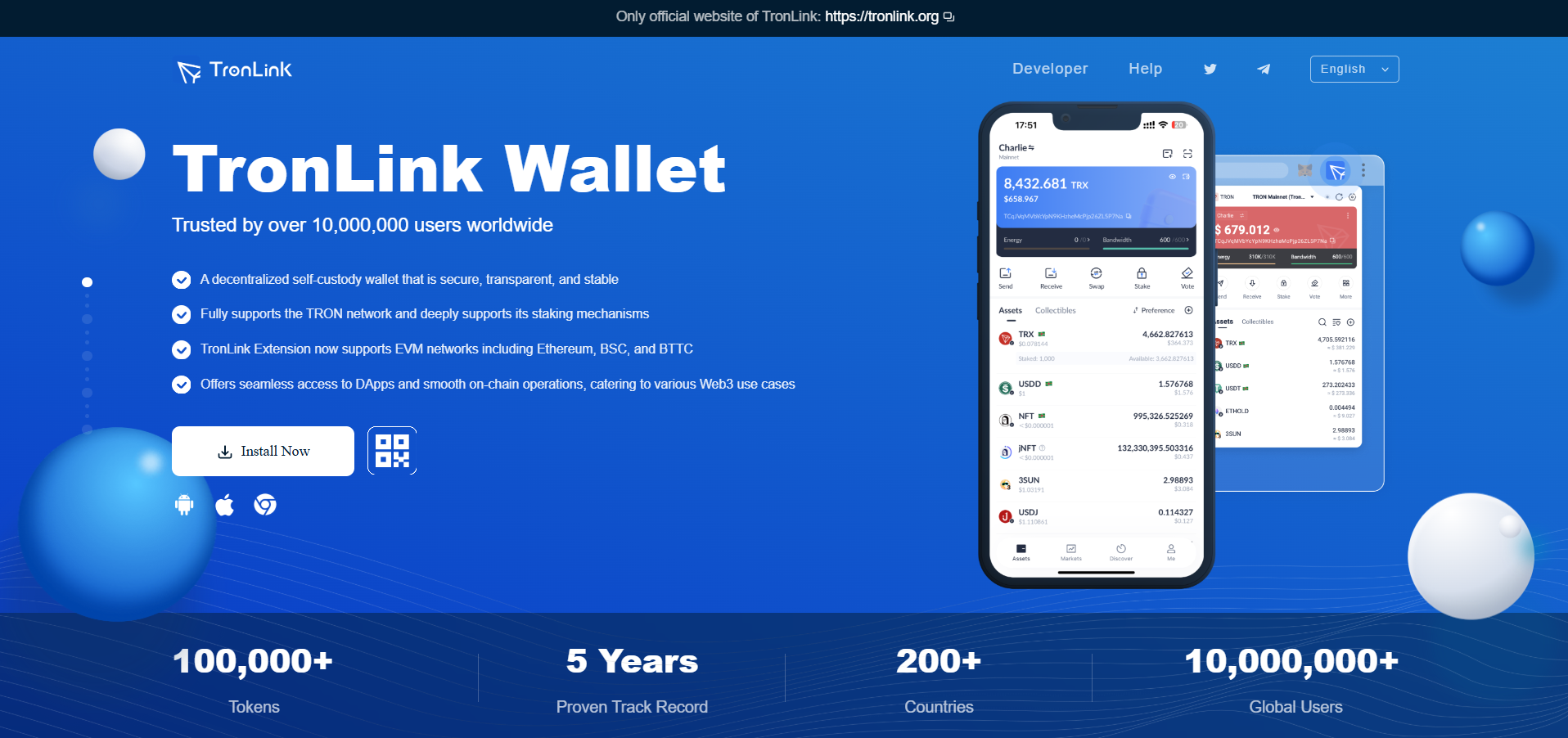
The wallet employs a distinctive two-tier security system for encrypting private keys, which is particularly useful for transactions involving TRX, TRC-10, TRC-20, and TRC-721 tokens. On top of that, the TronLink app allows you to handle resources within the TRON network, such as bandwidth and energy.
Much like other leading crypto wallets, TronLink is designed to seamlessly engage with various TRON-focused decentralized apps, including games, NFT marketplaces, and platforms for TRX staking.
Top crypto wallets: Bitget Wallet
Website: https://web3.bitget.com/
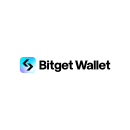
https://web3.bitget.com/en
-
LaunchedMarch 2018
-
TypeSoftware crypto wallet, mnemonic wallet, MPC keyless wallet, Account abstraction (AA) wallet, watch-only wallet, hardware wallet integration
-
CustodyNon-custodial
-
HeadquartersSeychelles
Bitget Wallet serves as a versatile, self-managed digital currency wallet, boasting a powerful collection of over 100 tools for various cryptocurrency mainnets, seamlessly integrated into one user-friendly platform.
500,000+
Kevin Como, Yan Yun
Bitget
Moving cryptocurrencies between different blockchains, exchanging crypto for fiat currency, online marketplaces for Non-Fungible Tokens (NFTs), integrating decentralized applications (dApps) and Decentralized Autonomous Organizations (DAOs), tools for staking and advanced trading, real-time market data, and a list of popular tokens – all in one platform.
No
In the core structure of the top-tier crypto environment, Bitget Wallet stands alone as the non-custodial digital asset wallet that boasts a $300 million protective fund specifically designed to ensure the safety of every trader’s assets.
Bitget Wallet serves multiple functions as a self-managed digital currency wallet, offering an extensive collection of over 100 blockchain networks accessible through a single user interface. First introduced in 2018 under the name BitKeep, Bitget Wallet has gained backing from prominent ecosystems and investors such as Dragonfly Capital, Bitget, and Foresight Ventures.
With user-friendly features such as Smart Money Notifications, Discovery of Popular Tokens, candlestick graphs, and comprehensive token information, Bitget Wallet offers instant market updates and empowers users to make informed trading strategies.
This digital wallet features an integrated NFT marketplace that’s built-in, along with a gateway for over 20,000 decentralized applications in areas like DeFi, SocialFi, GameFi, and other Web3 services. The user interface of the Bitget Wallet offers easy access to a fast, cross-chain swap function.
For Bitget Wallet, ensuring user asset security is our highest concern. We offer various types of wallets such as software, hardware, MPC, among others, all fortified with advanced technology to provide robust protection across multiple layers and defend against any possible threats. To further safeguard users’ assets, we have established a $300 million insurance fund that is ready to respond to any potential attacks.
Top crypto wallets: Trezor
Website: https://trezor.io/

https://trezor.io/
-
LaunchedJuly 2014
-
TypeHardware crypto wallet
-
CustodyNon-custodial
-
HeadquartersCzech Republic
As a seasoned crypto investor, I can vouch that Trezor is one of the pioneering hardware wallets designed to safeguard various mainstream blockchains and coins. This trusty companion ensures cryptographically secure management of your digital assets. The price for its entry-level devices begins at an affordable $49.
2,500+
Marek Palatinus, Pavol Rusnak
No
Crypto wallets app integrations, backup tools
No
Trezor provides three types of physical cryptocurrency wallets:
1. The entry-level Trezor One, priced at $49, comes with fundamental features.
2. The Trezor Model 3, costing $79, offers advanced multi-signature backup and is equipped with an EAL6+ chip.
3. The top-tier Trezor Model 5, retailing for $169, boasts a large color touchscreen, haptic feedback, and Gorilla glass protection.
As a longtime crypto enthusiast with years of experience in the digital currency market, I can confidently say that Trezor is one of the most reliable hardware wallets out there for securely storing and managing private keys. Having used several wallet options throughout my journey, I’ve found that Trezor stands out due to its longevity and support for a vast array of cryptocurrencies, including Bitcoin (BTC), Ethereum (ETH), Solana (SOL), and even Monero (XMR) – the go-to privacy-focused currency. For anyone serious about safeguarding their digital assets, Trezor is an essential tool in the crypto arsenal.
Currently, Trezor provides three types of hardware cryptocurrency wallets:
1. The entry-level model, the Trezor One, priced at $49, offering fundamental functions.
2. The Trezor Model 3, a more advanced option at $79, which includes multi-share backup and features an EAL6+ chip.
3. Lastly, the premium Trezor Model 5, retailing for $169, boasting a large color touchscreen, haptic feedback, and Gorilla glass protection.
Also, Trezor offers $99 Keep Metal backup devices for seed phrases.
Top crypto wallets: Ledger
Website: https://www.ledger.com/
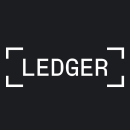
https://www.ledger.com/
-
LaunchedJuly 2016
-
TypeHardware crypto wallet
-
CustodyNon-custodial
-
HeadquartersFrance
As an analyst, I’d describe the Ledger ecosystem as a collection of premium multi-blockchain hardware wallets that are second to none in the crypto sphere. Among these, the Ledger Nano X and the recently launched Ledger Nano S Plus have been introduced with standard specifications. On the other hand, the customizable options available on the Ledger Flex and the highly anticipated Ledger Stax sets them apart, offering a more personalized user experience.
2,500+
Éric Larchevêque
No
Crypto wallet app integrations, backup tools
No
As an established player in the cryptocurrency world, Ledger is the pioneer in creating blockchain wallets that boast the innovative Ledger Recover backup system, backed by Coincover’s services.
In simpler terms, Ledger – a proven system of hardware wallets designed for secure cryptocurrency storage – is another provider of high-quality solutions for crypto management. Their devices are compatible with popular cryptos such as Bitcoin (BTC), Ethereum (ETH), Solana (SOL), Dogecoin (DOGE), and many others.
This range of beginner’s wallets includes the Ledger Nano X and the Ledger Nano S Plus, both offering fundamental features. For those seeking more advanced models with extensive customization, consider the Ledger Flex or Ledger Stax. Moreover, customers can take advantage of savings through the Family Pack and On-Chain Packs, which are designed for buying sets of wallets intended for families or friends.
Leading the way in cryptocurrency wallet production, Ledger offers innovative wallet solutions backed up using its distinctive Ledger Recovery service, which is supported by the Coincover provider.
Top crypto wallets: NFID Wallet
Website: https://nfid.one/
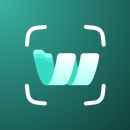
https://nfid.one/
-
LaunchedJuly 2024
-
TypeDecentralized cloud wallet
-
CustodyNon-custodial
-
HeadquartersNew York, United States
The NFID Wallet functions as a self-governing, decentralized, non-custodial digital wallet that operates on an open-source platform, making it unique among all other available cloud wallets.
100+
Dan Ostrovsky
No
Crypto swaps, NFT marketplace, native DAO
The NFID Wallet utilizes the security and scalability of Chainkey technology from the Internet Computer Protocol for managing multiple blockchain assets. This innovative approach merges open-source transparency with thorough external reviews, aiming to establish unprecedented levels of trust and reliability in decentralized wallets.
The NFID Wallet stands out as an innovative, decentralized digital asset wallet in the realm of Web3. Unlike traditional wallets, it is managed not by a single centralized entity, but by a Decentralized Autonomous Organization (DAO).
Using cutting-edge Passkey and Chainkey technologies, NFID Wallet ensures exceptional security by shielding users from potential threats that can breach even the strongest digital environments. This user-friendly wallet can be easily set up with just an email address, eliminating the need for installations, downloads, or phrases that could fall victim to phishing scams.
Backed by well-known venture capital companies like Polychain Capital, Tomahawk, Blockchain Founders Fund, 9Yards Capital, Outliers Fund, and the DFINITY Foundation, NFID Wallet is leading the charge in the field of decentralized advancements.
As an analyst, I’d rephrase it like this: The governance of this platform is fully controlled by the NFID Wallet DAO, a decentralized autonomous organization that handles updates to the code, manages fees from swaps, and decides how capital should be distributed. By staking our NFIDW tokens, token holders can actively engage in decision-making processes and potentially earn periodic rewards.
The NFID Wallet, featuring open-source coding and external reviews, leads the way in the crypto world by emphasizing transparency, security, and accessibility.
Top crypto wallets 2025: Quick facts
Based on my personal experience and extensive research, here are some essential points to consider when selecting a cryptocurrency wallet for the anticipated 2025 bull run:
1. Security: Prioritize wallets with multi-layer security features such as two-factor authentication (2FA), biometric authentication, and cold storage options.
2. User Interface: Choose a user-friendly interface that is easy to navigate, especially for beginners. A clean design and intuitive layout can make managing your crypto assets less stressful.
3. Compatibility: Opt for wallets that are compatible with various operating systems, such as Windows, macOS, Android, and iOS. This will allow you to access your funds from multiple devices.
4. Supported Coins: Ensure the wallet supports a wide range of cryptocurrencies, including Bitcoin, Ethereum, and other popular altcoins, as well as upcoming projects that may emerge during the bull run.
5. Transaction Fees: Consider the transaction fees associated with each wallet, as these can vary significantly. Lower fees may be beneficial for long-term storage, while faster transactions might be necessary during periods of high market activity.
6. Community and Reputation: Research the reputation of the wallet provider and their commitment to customer support. A strong community and positive reviews can indicate a reliable service that is responsive to user needs.
7. Backup and Recovery: Make sure the wallet offers secure backup and recovery options, as losing access to your funds can be disastrous. Some popular methods include seed phrases and hardware wallets.
8. Mobile Availability: If you frequently trade or monitor your investments on-the-go, look for a wallet that offers mobile apps in addition to desktop versions. This will allow you to stay connected and make quick decisions when needed.
By considering these factors, you’ll be well-equipped to select the best cryptocurrency wallet for the 2025 bull run. Happy investing!
| N | Name | Launched | Description |
| 1 | Coinbase Wallet | September 2023 | Self-custody multi-blockchain Web3 wallet by leading U.S. exchange Coinbase |
| 2 | Binance Wallet | November 2023 | Hybrid seedless exchange for 100+ blockchains backed by Binance |
| 3 | MyEtherWallet | March 2015 | Open-source interface for interaction with Ethereum (ETH) blockchain and its ecosystem |
| 4 | TronLink | June 2018 | Core cryptocurrency wallet of TRON and BitTorrent ecosystems |
| 5 | Bitget Wallet | March 2018 (prev. known as BitKeep) | Powerful Web3 self-custody wallet for thousands of blockchains with $300 million insurance fund, cross-chain swap module and NFT marketplace |
| 6 | Trezor | July 2014 | Ecosystem of hardware wallets for various use cases with reliable encryption and clear UX/UI |
| 7 | Ledger | July 2016 | Popular hardware wallets for various use cases with new-gen backup technology |
| 8 | NFID Wallet | July 2024 | The only wallet governed by DAO |
In summary, each of the premier cryptocurrency wallets we’ve highlighted comes packed with NFT capabilities and exchange protocols, and a few even allow for seamless integration with major centralized crypto trading platforms directly.
Closing thoughts
Crypto wallets, also known as digital wallets for cryptocurrencies, serve as secure containers for the private keys associated with your blockchain accounts. This makes them ideal for holding, sending, and managing your digital currency holdings.
Top-tier crypto wallet options span both software and hardware categories, including Coinbase Wallet, Binance Wallet, MyEtherWallet, TronLink, Bitget Wallet, as well as popular hardware wallets like Ledger and Trezor, all of which are highly regarded in the cryptocurrency community.
Read More
- 6 Best Mechs for Beginners in Mecha Break to Dominate Matches!
- One Piece 1142 Spoilers: Loki Unleashes Chaos While Holy Knights Strike!
- How to Reach 80,000M in Dead Rails
- Unlock the Ultimate Armor Sets in Kingdom Come: Deliverance 2!
- Top 5 Swords in Kingdom Come Deliverance 2
- REPO: All Guns & How To Get Them
- Unleash Willow’s Power: The Ultimate Build for Reverse: 1999!
- LUNC PREDICTION. LUNC cryptocurrency
- All Balatro Cheats (Developer Debug Menu)
- REPO: How To Play Online With Friends
2024-12-30 17:28